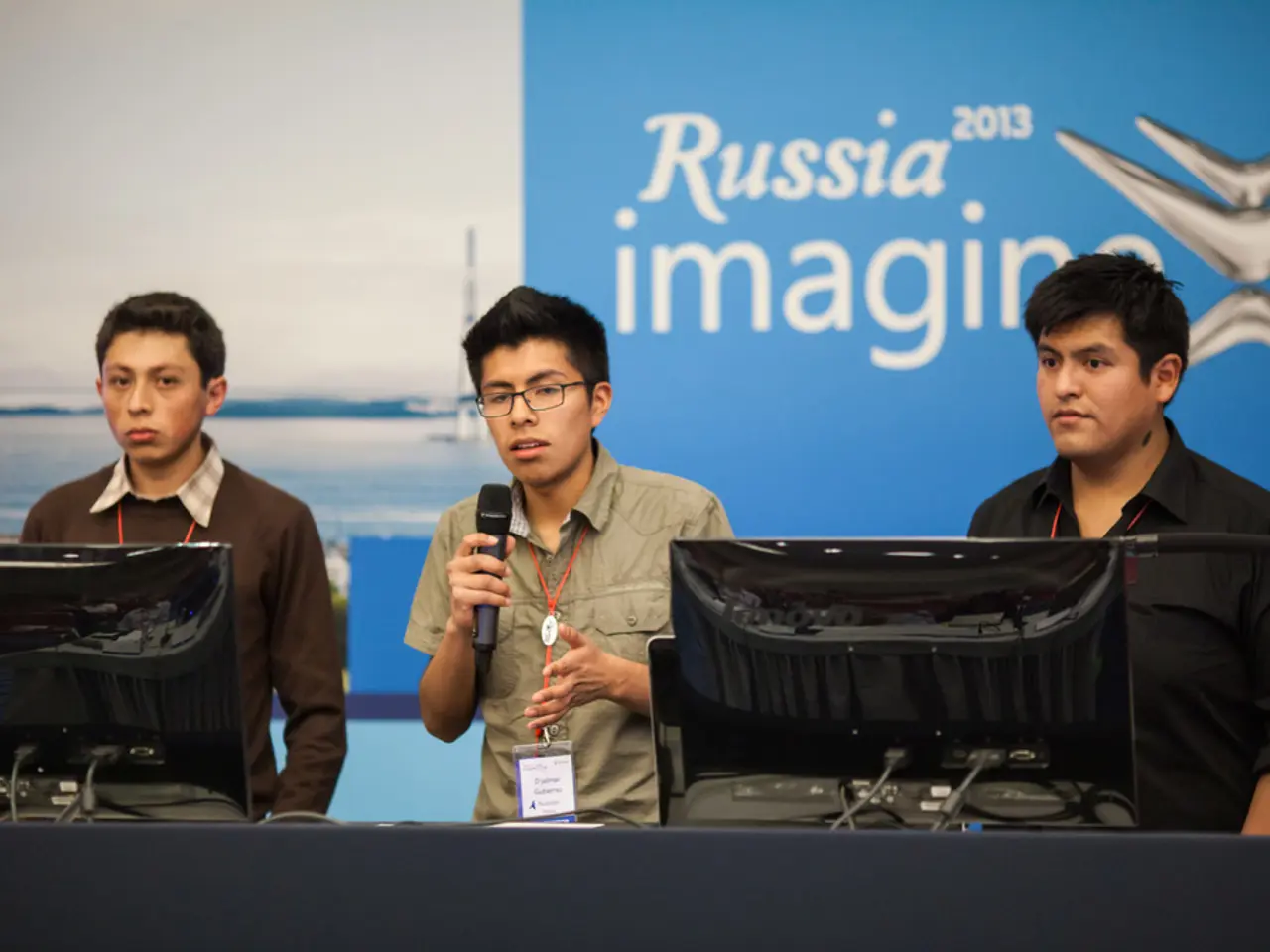Delay in DeepSeek's model release due to complications with Huawei chip supplies
Beijing has ordered its tech giants to justify their orders of Nvidia chips amid national security concerns, as Chinese AI companies grapple with the challenges of adopting China-made chips over Nvidia’s products.
China's push for AI chip self-sufficiency, with targets like 70% domestic chip use by 2027, faces obstacles due to performance gaps between domestic chips and Nvidia's leading GPUs. Domestically produced chips, such as Huawei's and Cambricon's, generally offer inferior performance compared to Nvidia's H100 or even the recently allowed H20 AI chip. This performance disadvantage contributes to delays in AI model development.
Political and security factors also play a central role. Chinese authorities have strongly discouraged domestic companies and government-linked entities from using Nvidia’s H20 chips, out of concerns about potential U.S. “backdoors” and national security vulnerabilities. This results in companies avoiding Nvidia’s technology in government or sensitive applications, even if Huawei’s or other Chinese chips perform worse.
The market is thus caught between two competing pressures: the need to break free from reliance on U.S. AI technology to avoid geopolitical and supply chain risks, and the desire to maintain cutting-edge AI capabilities, for which Nvidia’s chips remain the global standard with unmatched performance.
China’s strict export controls and international trade tensions further hinder the seamless use of foreign AI chips. Companies must navigate complex geopolitical dynamics, including U.S. export restrictions, Chinese government directives, and ongoing negotiations, such as the U.S. government demanding a 15% sales cut from Nvidia and AMD on AI chips sold to China.
In summary:
- The performance gap between domestic chips and Nvidia’s GPUs leads to delays in AI model development.
- Political pressure from the Chinese government discourages domestic companies from using Nvidia chips, fearing potential U.S. surveillance backdoors and national security vulnerabilities.
- National security concerns over foreign chips being potential security risks for government and critical sectors further complicate the situation.
- Trade and export restrictions, such as U.S. export controls and China's duties on foreign goods, add to the complexities.
These combined issues explain why Chinese AI firms are struggling to replace Nvidia’s superior products with domestic chips in the intense global AI race.
Meanwhile, in a different sphere, the Marshall Islands, a remote nation in the Pacific with fewer than 40,000 inhabitants, is playing its first ever international football match today against the US Virgin Islands on a high school pitch in Arkansas.
Elsewhere, bond investors are becoming increasingly concerned at levels of French public borrowing and impressed by Italian Prime Minister Giorgia Meloni's fiscal prudence. Bitcoin rose 1.3% in early trading to $124,480 today. The number of jailed former leaders of Peru is now four, with allegations against Martín Vizcarra relating to the construction of public works during his term as governor of Moquegua, a southern province.
In the world of finance, US Treasury secretary Scott Bessent has stated that Japan's central bank is falling "behind the curve" on inflation and will likely have to raise interest rates. However, the Bank of Japan held rates at its last meeting and did not offer any indication on the timing of a future increase, contrary to Scott Bessent's statement.
[1] "China's AI chip ambitions face significant challenges", MIT Technology Review, 2023. [2] "China's tech crackdown: What's behind it and what does it mean for the world?", BBC News, 2021. [3] "U.S. tightens controls on chip sales to China", Reuters, 2022. [4] "China's AI industry faces challenges in replacing Nvidia's chips", Financial Times, 2023. [5] "Performance comparison of AI chips: Nvidia vs. Huawei vs. Cambricon", Tom's Hardware, 2023.
- As China pushes for AI chip self-sufficiency, the performance disadvantage of domestic chips, like Huawei's and Cambricon's, compared to Nvidia's leading GPUs poses a significant challenge, leading to delays in AI model development.
- The Chinese government's political pressure discourages domestic companies from using Nvidia's chips due to fears of potential US surveillance backdoors and national security vulnerabilities, thus avoiding Nvidia's technology in government or sensitive applications.
- The global AI race is exacerbated by various factors, including national security concerns regarding the use of foreign chips in sensitive sectors, trade and export restrictions, and complex geopolitical dynamics like the US government's demands on Nvidia and AMD's sales to China.




